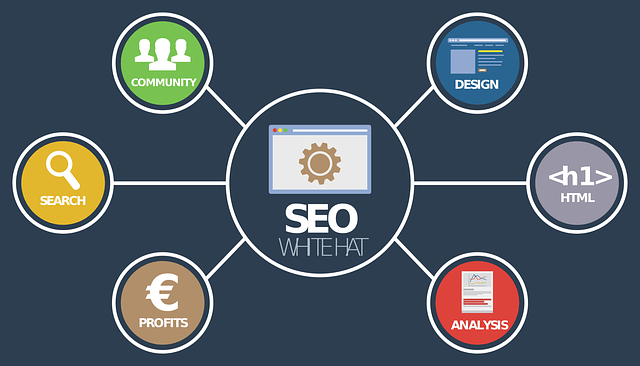Maintaining an SEO strategy isn’t that difficult for a digital marketer, but establishing one might appear to be an impossible effort. It’s challenging to picture how to put all the pieces together, build a coherent SEO strategy and develop guidelines to stay on track.
We specialize in this by working in the SEO business, and we work with customers every day to help them see the market from an SEO perspective. As a result, we’ve gotten quite excellent at setting out a clear, actionable strategy for our clients. So, we outline everything you need to know about SEO to build a clear plan for the 2022 market.
What Is SEO?

SEO is an acronym for search engine optimization. It means the process of increasing the exposure of your website when consumers use Google, Bing, or any other search engine to search for items related to your business. The higher your site ranks in search results, the more likely it will be for customers to see it. Rather than unpaid traffic, SEO targets direct and organic traffic so that your website visibility increases faster than your competitors.
How Does SEO Work?

Search engines like Google and Bing use multiple virtual bots to crawl websites, move from one to the next, collect data about those web pages, and index them. Just view the index as an extensive library where a librarian may help you locate exactly what you’re looking for by picking up a book.
Then, using hundreds of ranking factors, the crawler analyzes the indexing quality of the web pages to determine the order in which they should appear in search engine results for a particular keyword.
How Does Google Decide The Top Search Results?
Google does not disclose the certain factors they consider for ranking one site over another. But, despite their refusal to divulge the inner workings of its algorithm, we do know that they rank the websites and web pages based on the following factors:
Website Authority
Google utilizes its web authority to assess whether or not the information on your website is valid and reliable. They take into account how many other pages are linked to the page. Backlinks are links that go to your website from other websites. The more backlinks you’ll have, the more credible your website will look.
From Google’s standpoint, a backlink is comparable to a vote. It means that someone outside your website thinks your material is important enough to link back to you. Therefore, the more backlinks a webpage has, the higher it will rank on Google.
Keyword Relevance
When we search for something in Google, we expect to get results matching our queries. As a result, Google prefers web pages that are closely linked to your search query. Google checks how much the focus keyword of your query appears on a webpage and how relevant it looks.
This is because over a million sites include the same term that you looked for. For example, for the keyword “youtube competitors,” Google returns 218 million search results. So, it is evident that they use several algorithms to position the results so that the best websites stay on top.
Content Quality
Your material might be both authoritative and relevant. However, if the material is not valuable, Google will not place it at the top of the search results since Google aims to provide the most significant user experience. Furthermore, Google distinguishes between better-quality material and valuable content.
Suppose you have a high level of authority and a well-structured website. If you produce a piece of material that has several mistakes, plagiarism, a lack of information, and is incomprehensible to most individuals, Google won’t rank it on top. Even if you have a very authoritative website, you will not rank at the top.
What Are The Types Of Search Results?
|
Organic Search Results |
Paid Search Results |
| 1. Organic search results sometimes referred to as natural results, are organic results ranked only based on quality.
2. Organic search results have better potential to draw in website traffic. 3. There is no cost involved in organic search results, so it is a viable option for many companies with small capital. |
1. In paid search results, advertisers are ranked in sponsored search results based on how much they are prepared to pay for a single user from a given set of search engine results.
2. However, 70%-80% of people ignore paid results, so they don’t have much potential to increase website traffic. 3. A simple paid ad on Google costs $1-$2, and the most expensive ones cost $50. |
Types Of SEO
|
On-Page SEO |
Off-Page SEO |
|
1. On-page SEO refers to any actions you may do on your website to assist search engines in understanding it and increase your chances of ranking high for your target keywords. 2. Search-engine-friendly URLs, keyword optimization, meta descriptions, header tags, title tags, anchor text, internal linking, and other elements are all part of on-page SEO. 3. On-page SEO helps you optimize those parts of your website that are within your control. |
1. Off-page SEO refers to everything that isn’t on the page. It covers any activity that you may do to build authority and enhance your site’s rankings. 2. Off-Page SEO includes links from other websites, guest posts on social media, and writing forums. 3. On the other hand, Off-page SEO helps you increase your domain authority through acquiring backlinks and creating helpful content. |
Why Is SEO Important?

In today’s world, 93% of internet encounters begin with a basic search. Thus, SEO serves as a road map for increasing the number of visits to your website. Consequently, more than 61% of companies boost their SEO and highlight organic presence as an essential inbound marketing goal.
While broad SEO can help your business rank for phrases throughout the country, local SEO can create leads and increase conversions by targeting local audiences in your area. Local SEO may also be used by businesses to promote their services and products to local clients in a specific place.
Technical SEO is in charge of the website’s speed. The quicker a website loads, the better. It helps you make your website simple, concise, yet visually appealing. Many individuals go from a desktop computer to a mobile device. So, technical SEO also helps you test your site on a mobile device to make it easy to navigate for mobile consumers. In addition, you learn to use a consistent and user-friendly URL structure and continuous internal connections with hypertext.
Off-page SEO consists mainly of link development through various tactics such as guest posting, blogger outreach, online forums, and providing quality content on many websites. All of this adds up to an excellent digital marketing strategy. However, when it comes to Off-Page SEO indicators, one of the essential variables to examine is the number of high-quality backlinks to your website.
Conclusion
So, we have highlighted the fundamental principles associated with SEO. If you understand these terms well, you can build a straightforward and actionable SEO strategy for your marketing campaign. However, if you need more help from us to clarify your doubts about any of the topics in this article, you can let us know in the comment box.
Read Also:








